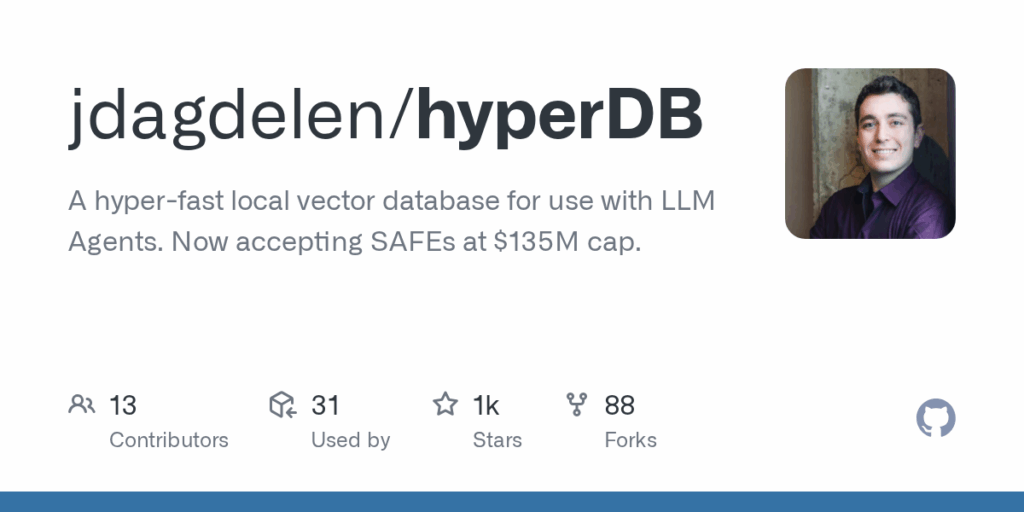hyperDB
Basic Information
HyperDB is a hyper-fast local vector database designed to store and query document embeddings for use with large language model agents. The README states it provides a simple, agent-compatible interface and is intended to be used as a local backend for LLM-driven workflows. The project ships a highly optimized C++ backend vector store with hardware-accelerated operations via MKL BLAS. It enables users to index arbitrary documents, attach ids and metadata, persist databases to disk, and run similarity queries. The package is published on PyPI as hyperdb-python and can optionally use sentence-transformers for local embedding generation. The README includes a concrete Python usage example that shows creating a HyperDB instance from a JSONL document set, saving and loading a compressed database file, and running top-k queries to retrieve matching entries.








